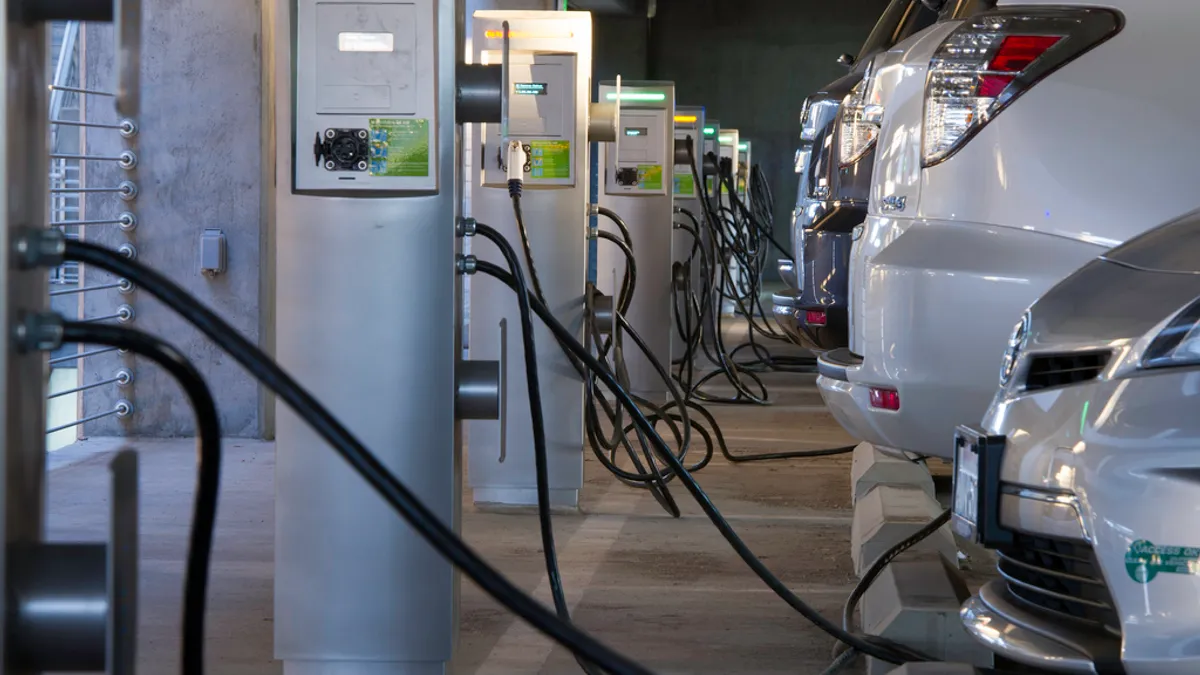Dive Brief:
- The Minnesota Public Utilities Commission has approved electric vehicle charging rates for the state's investor-owned utilities, along with an optional all-renewable power surcharge.
- As Clean Technica points out, Minnesota is now the first state to require IOUs to offer peak charging rates for electric vehicles.
- Otter Tail Power and Minnesota Power will only provide off-peak rates, while Xcel Energy will also off a peak time charging option that is about 500% higher than its off-peak..
Dive Insight:
Minnesota anticipates growing interest in electric vehicles and regulators have now directed the state's investor-owned utilities to begin offering charging rates which will better allow customers to manage the bills and power consumption.
Minnesota Power is offering a summer and winter off-peak charging rate of 4.332 cents/kWh. Otter Tail's summer off-peak rate is 2.962 cents/kWh and its winter rate will be 4.661 cents/kWh. Xcel Energy's off-peak rate will be 3.3 cents/kWh, while a peak rate will allow charging at rates between 14 cents/kWh and 17.5 cents/kWh.
Each utility is also offering an all-renewable power premium, ranging from a fraction of a cent per kWh to 2.5 cents/kWh.
According to briefing papers available from the PUC, the all-renewable energy options are priced in a wide range "because the proposed all-renewable rates are based on the utilities’ existing green
pricing programs, which have been revisited to varying degrees since their inception in 2001."
Regulators say they expect electric vehicles to gain traction in the state, both among environmentally-conscious consumers and those who see the convenience of home charging. By some estimates, PUC staff said, an electric vehicle powered by Xcel's current resource mix would have the greenhouse gas emissions of a traditional engine getting over 1,500 miles per gallon.
"But while EVs’ environmental benefits will appeal to some consumers, Staff believes it is EVs’
convenience that will help them achieve broader appeal," according to the briefing papers. "Extended driving ranges mean EV owners will be able to virtually eliminate trips to the gas station: as over 99 percent of trips in the U.S. are less than 100 miles, an overnight charge in the garage will provide more than enough power for practically all outings."
The electric utility as a whole is increasingly bullish on electric vehicles, and that trend was showcased this week at the Edison Electric Institute's annual convention. At that show, Secretary of Energy Ernest Moniz signed an agreement with the utility trade group to commit to increasing the convenience and penetration of electric vehicles, especially through the installation of charging stations. Tesla CEO Elon Musk also courted the power sector, saying that electricity demand could double or more if the U.S. moves quickly toward electrified transportation.















